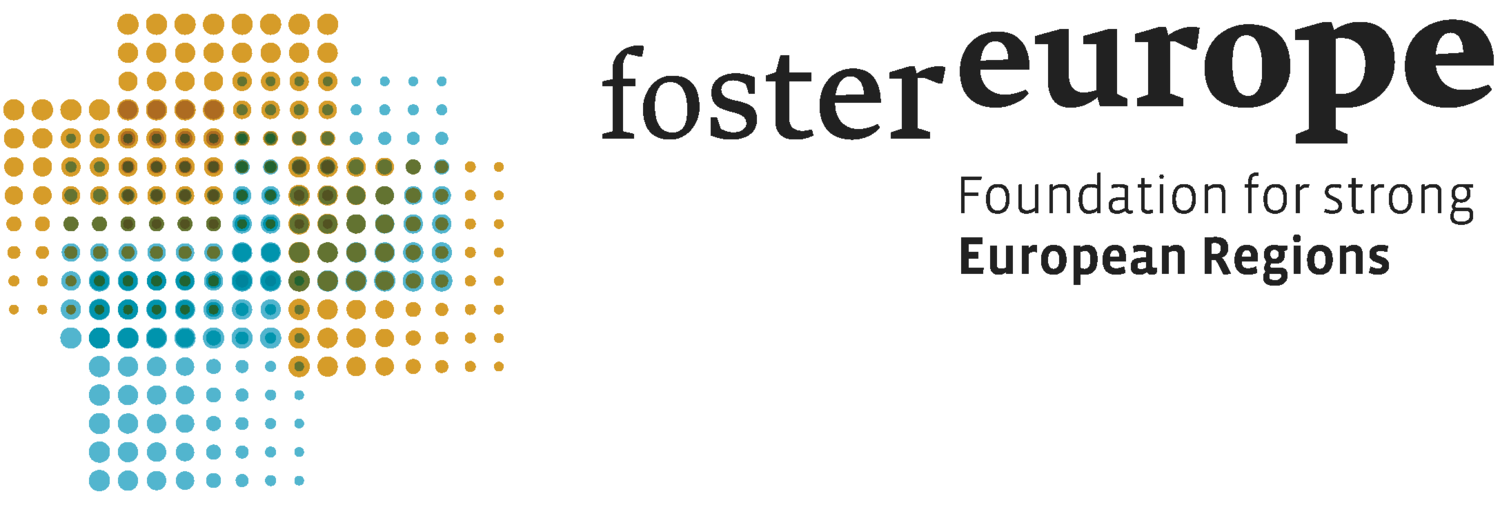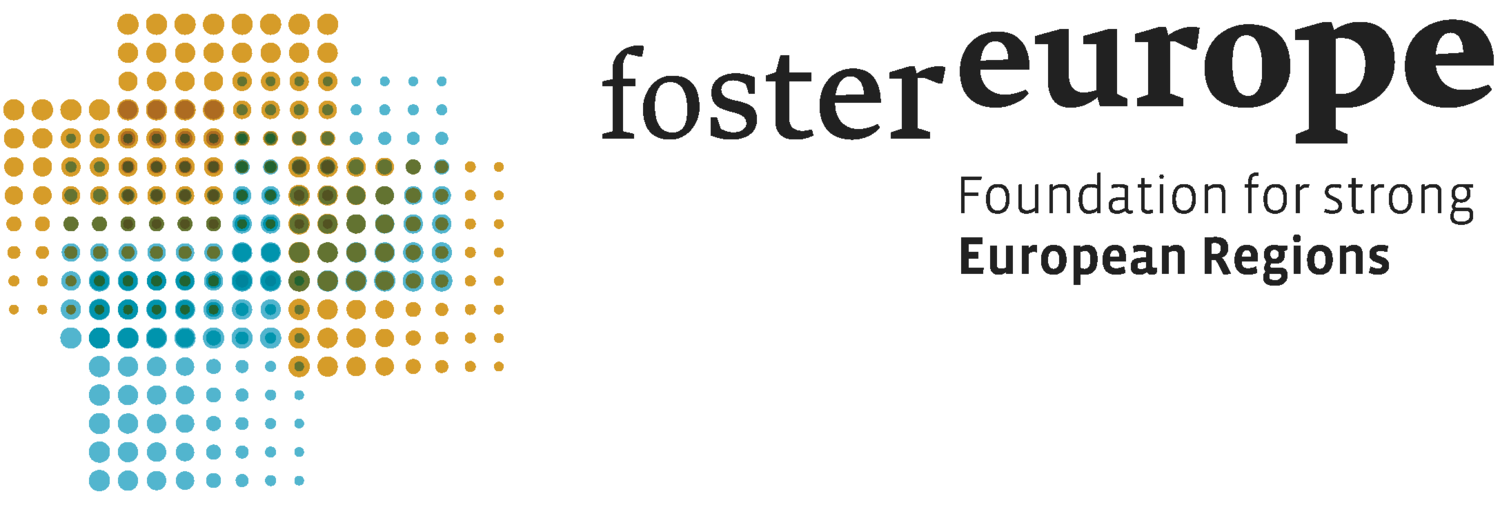Foster Europe Foundation for strong European Regions
Child Protection Policy
1. Introduction
The Foster Europe Foundation for strong European Regions (Foster Europe) is a private charitable foundation under Austrian law. Since 2011, Foster Europe occasionally develops and implements educational projects for and together with children, especially students at secondary level of all school types (14-18). Foster Europe `s vision is a sustainable and inclusive society in which all children grow up happy, healthy, capable and confident and in a society in which they are respected as individuals in their own right. We believe that child protection is crucial to ensure that children have the rights, information and space in which they can express their views. Children can only become capable change agents for a sustainable and inclusive future for themselves, their communities and society if they are consistently safeguarded from abuse and exploitation of any kind. Foster Europe considers the voices of children, especially those marginalised and disadvantaged, as crucial contribution to its work and, furthermore, to the implementation of the UN Agenda 2030.
Child abuse and exploitation in all its manifestations is a global phenomenon. It occurs in all countries and in all societies. It involves emotional, physical, sexual abuse and the neglect of children. In order to protect children from potential abuse and exploitation during their involvement with project events and activities led and co-organized by Foster Europe this Child Protection Policy has been developed.
2. Objectives and principles
In Foster Europe `s project activities, nevertheless the objectives and contractual items, the well-being of the participating children are set as highest priority. In our work we follow the four guiding principles of the UN Convention on the Rights of the Child:
Right to equal treatment and protection from discrimination
Priority of the best interests of the child
Securing development opportunities
Taking the child's wishes into account (https://www.ohchr.org/en/instruments-mechanisms/instruments/convention-rights-child)
Therefore, Foster Europe implements the project participation of children on the following principles:
The participation is voluntary.
The participation is meaningful, relevant and informative.
The participation is transparent and respectful.
The participation is gender-equal, non-discriminatory and inclusive.
The participation is safe.
The particpation is accountable.
We keenly believe and base our practice on the principle that those rights apply regardless of age, sex, gender, sexual orientation, nationality, social and cultural origin, ethnicity, language, political opinion or religious belief, educational background, socio-economic status, disability, physical or mental illness. Foster Europe never tolerates unequal treatment, discrimination or exclusion and takes active action against it. Foster Europe furthermore sees every project and staff member, persons associated with project events and activities, as responsible and accountable to secure a safe space for children. We encourage children and young people to express their opinions, to take a stand and to demand opportunities to participate.
The guiding principles of project events and activities led and co-organised by Foster Europe are:
Strict consideration of all implications arising from legal requirements
Consideration of social, cultural, ethnic and biographical backgrounds
Promotion of diversity and variety
Consideration of individual special needs of all
Promotion of freedom of choice and self-determination as the primary goal of all activities
Promoting general understanding of issues of special needs and diversity
Promotion of individual development potential
Promotion of scientific transparency, diversity and honesty
Protection of privacy and integrity of personal data
Emphasis on non-violence and conflict resolution orientation in all our projects
3. People
Foster Europe places clear responsibilities and expectations on its staff and associates and supports them to understand and act in line with these responsibilities. Foster Europe will meet these requirements particular through the following measures:
High level of education of our team
Qualifications, internal further training and constant internal monitoring
Commitment of all employees to the organisation`s principles and instruments
Opportunities for reflection and supervision and constant internal communication
Ensuring compliance with organizational and legal requirements with regard to data protection, data security and protection.
Raising awareness activities of the relevance of our basic attitudes among cooperation partners, external and freelancers as well as volunteers.
Designating roles and responsibilities for child safeguarding in activities and projects.
Training of staff
Supervision for new staff: New employees will not have unsupervised access to children.
Onboarding: New employees working with children get training on Child Protection.
4. Procedure
A reporting procedure is made widely available to ensure that everyone is clear what steps to take regarding the safety of children and other witnesses. The guiding principle here is that the safety of the child is always the most important consideration. At activities where children are directly involved, they will be informed about the Child Protection Policy.
Foster Europe will respond to all reports of actual or alleged abuses based on its Child Protection Policy, irrespective of the nature of the referral, who the allegations are about or who the referrer is or where she*he is from.
Our standards:
Be aware what constitutes child abuse and exploitation (included in the Child Protection Policy) and understand its provisions.
Know signs of abuse and report any suspicious observations immediately to the project manager and the management board.
Respect lines of authority and reporting procedures.
Respect the basic rights of others by facing fairly, honestly, and tactfully, and by treating people with dignity and respect.
Treat all children equally: be inclusive and involve all children without discrimination.
Protect the health, safety and well-being of yourself and others.
Be aware of high-risk peer situations (e.g. unsupervised mixing of older and younger children and possibilities of discrimination against minors).
Be aware of potential for peer abuse (e.g. bullying of children).
Be concerned about the way in which your language, actions, and relationships with children could be perceived.
Encourage and respect children’s voices and views.
Comply with data of data protection regulations and personal rights
Ensure that there is a minimum of two staff members present in activities with children (to allow one to go out to deal with any immediate needs of children).
Precise information on specific equipment used by the disabled child needs to be obtained prior to the event to ensure its accessibility to all buildings and meeting spaces.
Make sure that accompanying adults should not be younger than 21 years old, unless in exceptional circumstances and agreed in advance.
When participants are invited to stay overnight, agree room sharing arrangements in advance and with consent of the parents/guardians and children.
Report any suspicious observations or alleged abuse as well as any circumstances or situations, which may be subject to misinterpretation to the project manage
Communication and Media Guidelines
All communication activities and the media presentation of project events and activities are carried out under strict consideration of the applicable legal provisions, in particular with regard to data protection and personal rights. The team of Foster Europe is regularly informed of the need for the attention to the protection of personal rights and data protection and – where necessary – also formally obliged to do so. Informed consent must always be sought before taking any photos, videos, or requesting personal information about children’s lives that may then be used in Foster Europe materials. Informed consent means that children are told how Foster Europe may use the information or image/film and that they are under no obligation to agree to its use.
5. Monitoring
Foster Europe monitors and reviews its Child Protection Policy within its management structures on a regularly basis for the whole organisation. In addition, for projects the evaluation of the CPP is part of each communication to our partners. All project participants are given the possibility to submit feedback anonymously.

